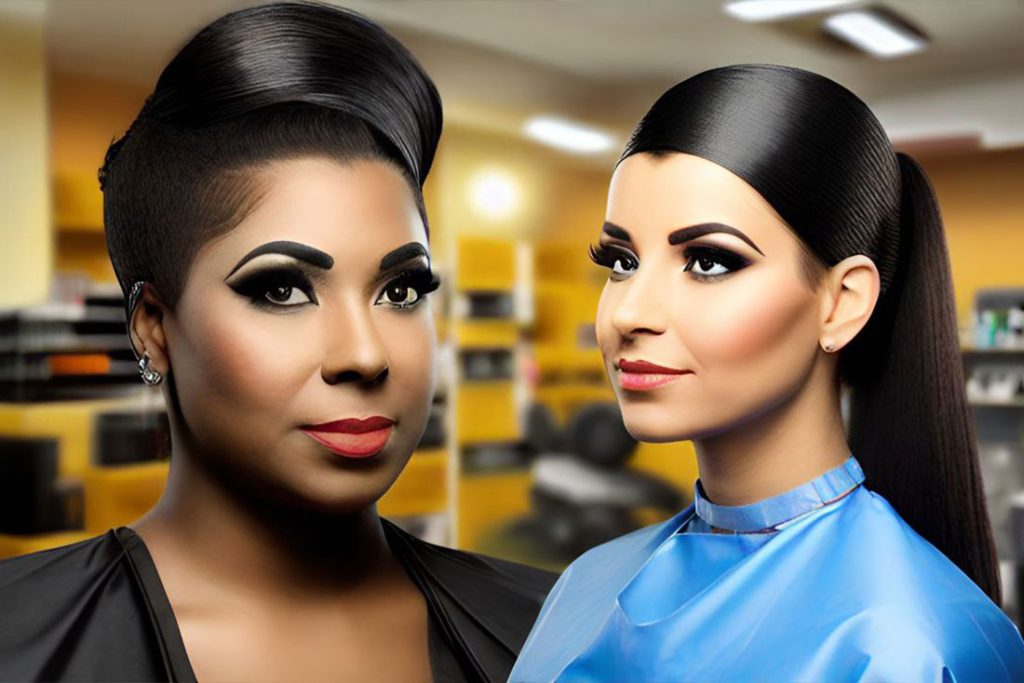Exploring Career Pathways for Licensed Cosmetologists: Opportunities and Steps Forward
The beauty industry is an expansive, continually evolving ecosystem that offers a wide array of career opportunities. For those armed with a cosmetology license, the professional avenues are abundant and can lead to incredibly rewarding careers, both personally and financially. From specialization in specific service types to influential leadership roles, a cosmetologist’s career path is versatile and robust. This article aims to provide an in-depth overview of these potential career directions, discussing responsibilities, requirements, and the types of facilities that offer these roles.

Licensed Cosmetologists
Specialists: Harnessing a Niche
Cosmetologists may choose to delve deep into a particular facet of their training, becoming a specialist in areas such as haircutting, hair texture, or hair color. Specialization requires commitment to additional training and consistent practice. By harnessing your skills in a specific area, you can perform top-quality services, potentially leading to increased clientele and opportunities to present educational seminars. This niche focus also aids in maintaining a unique professional identity that sets you apart from other salon professionals.
Salon Trainer: Educating the Industry
As the beauty industry expands, there is a growing demand for experienced salon professionals to train others. Salon trainers are hired by various organizations including manufacturers and salon chains to conduct a broad range of training, from technical skills to management and interpersonal relationship coaching. Salon educators play a crucial role in enhancing the overall quality of salon services, working with diverse establishments to upskill their personnel.
Manufacturer Educator: Building Brand Knowledge
Brands within the cosmetology industry typically hire their own educators. These professionals are tasked with training salon staff to understand and effectively use the company’s products. This position, ideal for a seasoned professional with solid public speaking skills, can advance to more prominent roles, such as a field, regional, or platform educator, even making appearances at international shows.
Artistic Director: Inspiring and Leading
Artistic directors set the tone and image for a salon or a manufacturer. These individuals need to inspire and lead hairdressers, establish trends, and represent the brand with charisma and confidence. Successful artistic directors exhibit mastery in technique, communication, and presentation skills, often performing at trade shows and becoming the face of the salon or brand.
Education Director: Bridging Brands and Professionals
Serving as the bridge between a brand and hairdressers, an education director creates and standardizes education programs aimed at boosting sales. This high-level position demands excellent hairdressing skills, prior leadership roles, effective communication, financial management, and comprehensive product knowledge. It is usually available to cosmetologists with five or more years of experience and a strong record of continued professional education.
Cosmetology Instructor: Shaping Future Professionals
For those who find fulfillment in teaching, becoming a cosmetology instructor is an enriching career path. Instructors often have successful salon careers before dedicating themselves to molding the next generation of professionals. This role offers an opportunity to share your passion and expertise, helping others realize their potential in the cosmetology field.
Film, Theatrical, or Editorial Stylist: Shaping Visual Narratives
Working as a stylist in the film, theatrical, or editorial industry is an exciting, albeit demanding career choice. These stylists shape the visual narrative of various media and often work under high-pressure, fast-paced conditions. Volunteering to assist in these industries can provide a stepping stone to such roles. Networking with photographers, calling agencies, and seeking advice from seasoned professionals can pave the way to these coveted positions.
Creative Director: Driving Brand Success
Creative directors, usually with a decade or more of broad-spectrum hairdressing experience, are considered the driving force behind a brand’s success. Overseeing, coaching, and leading the company’s educators to uphold professional standards, they play a critical role in brand development and strategy.
Salon Manager: Balancing Creativity and Business
A salon manager role combines creativity with business acumen. Understanding marketing strategies, financial documents, inventory management, and client-staff relations are vital skills for this position. While responsibilities can vary significantly, most managers focus on ensuring the profitability and smooth running of the salon, often benefitting from formal business education to supplement their experience.
Choosing Your Ideal Facility
Your career path can also be influenced by the type of facility you choose to work within. Options range from specialty salons focused on one type of service to full-service salons offering hair, skin, and nail services. Other alternatives include mobile services, where permitted, and day spas that focus on both beauty and wellness treatments.
Conclusion
Becoming a licensed cosmetologist opens the door to a diverse array of career possibilities. The journey to success involves continued skill development, training, and experience, supplemented with a dose of passion and creativity. The beauty industry offers various pathways that cater to different interests and talents, promising a fulfilling career for those who are ready to embrace the opportunities.






